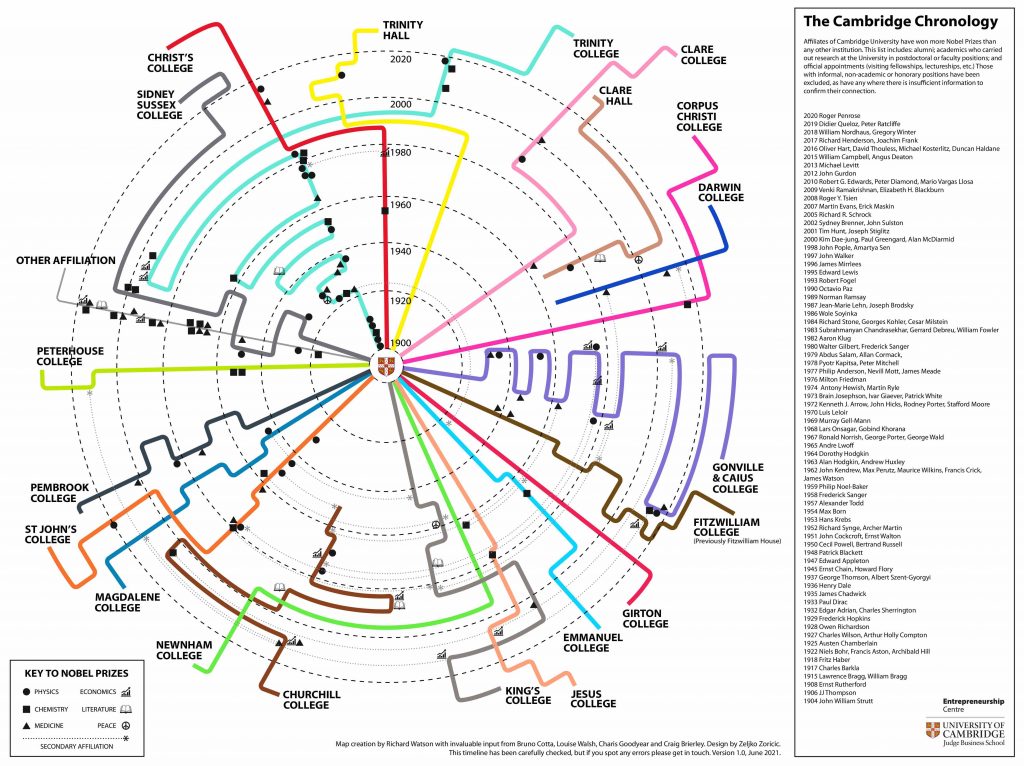This visualisation of Nobel Prizes won by colleges and other affiliates of Cambridge University between 1905 and 2020 shows that the University has won Prizes more than any other institution in the world. It also demonstrates the importance of pure research and the world-changing impact of unbridled curiosity and speculation. Along with the power of accidental collisions with people and information this is perhaps something that successful entrepreneurs have in common with Nobel Prize winning academics – the ability to see the world as it is and ask ‘why?’ or to see the world as it could be and ask ‘why not?’.
But what of the future? What might a physics prize be won for in the year 2040 and how might such research eventually be applied to real world problems? Moreover, how might the Nobel Prizes themselves evolve? Could there be a new category created in 2029 for data modelling or data ethics perhaps? And why is there still no suitable accommodation made for aspects of environmental science, artificial intelligence or philosophy relating to tech?
With some luck, a future Nobels graphic is on the cards….

